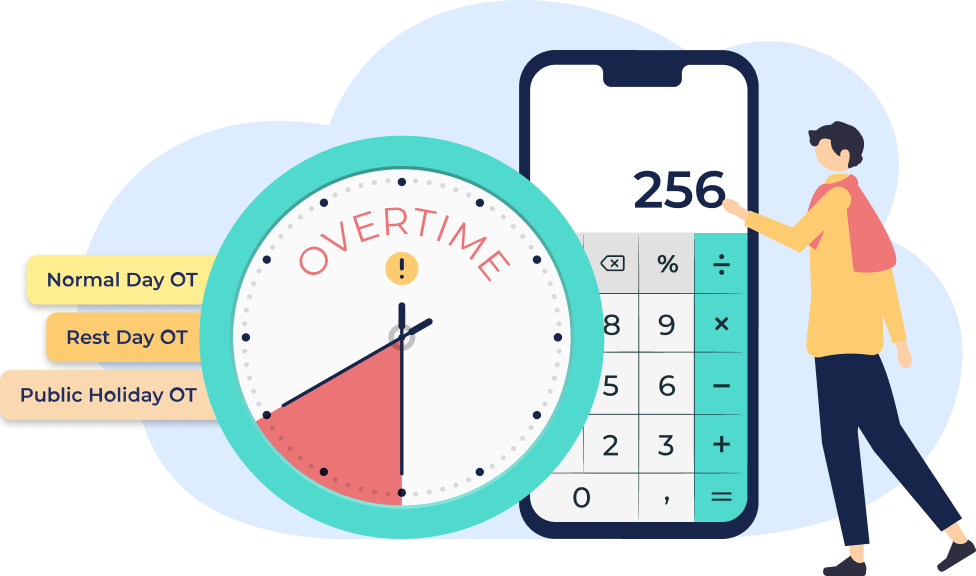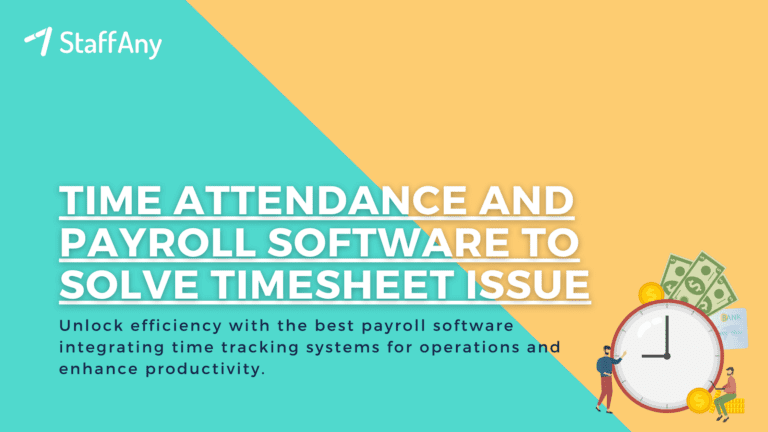The Employment Act 1955 is the primary legislation governing employment matters in Malaysia. In July 2022, the Employment (Amendment) Act 2022 came into effect, amending the Malaysian Employment Act 1955 to provide additional protection to workers.
This article delves into the significant modifications to the Malaysian Employment Act resulting from the 2022 amendment, covering a range of topics from changes in maternity laws to the introduction of Flexible Working Arrangements.
What Is Malaysian Employment Act 1955?

The Malaysian Employment Act 1955, also known as the Employment Act 1955, is a significant piece of labor legislation in Malaysia. It was enacted to govern various aspects of employment relationships and protect the rights and interests of both employees and employers.
The Act has been amended several times to adapt to changing labor market conditions and address emerging issues.
Read more: Guideline to Overtime in Malaysia Labour Law
Key provisions of the Employment Act 1955
The Employment Act 1955 encompasses significant regulations that address various aspects of labor relations and employment conditions in Malaysia. These pivotal provisions within the act cover a wide range of topics, including but not limited to:
1. Employment Contracts
The Act outlines the terms and conditions that should be included in employment contracts, such as the name of the employer, employee’s job description, working hours, wages, and termination conditions.
2. Wages and Benefits
It sets rules for payment of wages, overtime, rest days, and public holidays. The Act also establishes regulations regarding deductions from an employee’s wages.
3. Working Hours
It regulates the maximum number of working hours per day and week, as well as rest intervals and meal breaks.
4. Termination and Dismissal
The Act specifies the procedures and reasons for termination and dismissal, ensuring that employees are treated fairly in cases of termination.
5. Annual Leave and Sick Leave
It stipulates the entitlements of employees to annual leave, sick leave, and maternity leave.
Read more: Who is Entitled to Overtime Pay in Malaysia?
6. Employment of Women and Young Persons
The Act includes provisions related to the employment of women and young persons, including restrictions on working hours and types of work for certain categories.
7. Employees Benefits
It mandates the provision of benefits such as maternity benefits, public holidays, and payment in lieu of notice.
8. Trade Unions
The Act recognizes the rights of trade unions and outlines their registration and regulation.
9. Foreign Workers Employment
It addresses the employment of foreign workers, including the requirement for work permits and the rights and responsibilities of both employers and foreign employees.
10. Employment Standards and Regulations
The Act allows the government to establish employment standards and regulations to protect the rights and welfare of employees.
Read more: Can Employee Refuse to Work Overtime in Malaysia?
Key Changes of The Employment (Amendment) Act 2022
The Employment Act (EA) of 1955 is a federal legislation in Malaysia that serves as the foundational legal framework governing employment terms and conditions within the nation. In July 2022, the Employment (Amendment) Act 2022 came into effect, amending the Malaysian Employment Act 1955 to adapt the regulation to workers.
1. The Scope of “Employee”
Pre-amendment, the Act only applied to two kinds of employees:
- Regardless of occupation, those making less than RM2,000 per month.
- Regardless of pay, workers that performed certain vocations, including manual labor, those who supervised manual laborers, and those who drove mechanically propelled vehicles.
Following the enactment of the Employment (Amendment) Act 2022, the Act’s provisions will extend to individuals who have entered into an employment or service agreement. Nonetheless, certain aspects, such as compensation for work conducted on rest days and public holidays, overtime pay, termination procedures, layoff benefits, and others, will exclusively apply to a particular category of employees earning RM4,000 or less.
2. Flexible Working Arrangements (FWAs)
Due to the revisions made to the Employment Act (EA), Malaysian employees wishing to pursue Flexible Work Arrangements (FWAs) can formally propose their preferences to their employers.
These FWA requests should be in written form and can involve suggested changes to working hours, workdays, or the workplace. Subsequently, employers are obliged to furnish a written response to the employee’s request within a 60-day timeframe, and if applicable, provide reasons for any denials.
3. Maximum Working Hours
In the past, employees in Malaysia were allowed to work up to 48 hours per week. However, starting from January 1, 2023, this upper limit has been reduced to 45 hours per week, excluding meal breaks.
Deputy Human Resources Minister Datuk Awang Hashim explained that this adjustment was implemented to safeguard the well-being of workers in accordance with the standards set by the International Labour Organization (ILO) conventions.
4. Sick Leave
Modifications to sick leave policies will include eliminating the provision that limits the combined duration of sick leave and hospital stays to 60 days. Consequently, employees will be entitled to a maximum of 60 days of sick leave specifically for hospitalization, in addition to their regular sick leave entitlement.
Read more: Type of Allowances for F&B Employees in Malaysia
5. Maternity and Pregnancy Protection
The duration of (paid) maternity leave has been extended from 60 days to 90 days. A female employee may, with the consent of her employer, commence work at any time during the maternity leave if she has been certified fit to resume work by a registered medical practitioner, regardless of whether she is entitled to receive maternity allowance.
Additionally, the amendment establishes legal protections preventing an employer from terminating a female employee due to her pregnancy or pregnancy-related illness.
Exceptions to this protection apply in cases where the employee violated her employment contract, engaged in misconduct, or if the business is closing. However, in any circumstance, the employer must demonstrate that the termination is unrelated to the employee’s pregnancy or illness.
6. Paternity Leave
The amendment introduces a significant change by introducing paid paternity leave, representing a notable development in the Malaysian Employment Act of 2023. Under this provision, working fathers will be eligible for 7 days of paid paternity leave, which must be taken as a continuous period.
To qualify for paternity leave, married male employees must meet certain criteria. They must have been employed by the same employer for a minimum of one year prior to the commencement of their paternity leave. Additionally, they are required to provide their employer with a notice period of 30 days from the expected due date of the pregnancy or as soon as possible after the birth.
Read more: How to Apply Foreign Worker Quota in Malaysia?
7. Provision of Employment for No Contract of Service
As per the Bill, if an employee does not possess a written employment contract, they will be considered an employee in any legal proceedings related to violations of the Act if the following conditions are met:
- They work under the supervision or control of another person regarding the manner of their work.
- Their working hours are determined and supervised by another person.
- They are provided with tools, supplies, or equipment by another individual to perform their tasks.
- Their work is an essential part of another person’s business or enterprise.
- Their labor primarily contributes to the profit of another person.
8. Sexual Harassment
The amendment increases the penalty for employers who fail to investigate claims of sexual harassment from RM10,000 to RM50,000. Additionally, employers are now mandated to display a notice in the workplace to promote awareness about sexual harassment and its prevention.
9. Employment and Termination of Foreign Workers
Previously, employers who hired foreign workers were required to notify the Director-General about their new hires and provide relevant details within a 14-day timeframe.
However, with the recent amendment, employers seeking to employ foreign workers must now obtain prior approval from the Director-General. Failure to secure this approval may result in penalties, including fines of up to RM 100,000, imprisonment for up to five years, or both.
Furthermore, employers are now obligated to promptly inform the Director-General within 30 days if they terminate the employment of a foreign worker, or in cases of employment pass expiry, repatriation, or deportation.
In the event that a foreign employee absconds, meaning they leave their job without informing their employer, the employer is required to notify the Director-General within 14 days.
The expansion of coverage under the Employment (Amended) Act 2022 represents a significant change, as it now encompasses all employees regardless of their income level or job role.
The amendment also introduced a requirement for employers to provide at least 30 minutes of rest for every five hours of work, with provisions for shorter rest periods in certain circumstances. Employers are also required to provide at least one rest day per week.
Read more: Employee Performance Evaluation: Purposes & Benefits

Calculate your Staff’s Overtime Pay with Overtime Calculator Malaysia
Introducing StaffAny’s overtime calculator in Malaysia, designed to simplify determining overtime pay for hourly and monthly workers. With this invaluable tool, the complexities of overtime pay calculations are transformed into a breeze. Bid adieu to the daunting task of manual computations and usher in an era of effortless precision.
Whether you’re a business owner aiming to keep your employees content or a professional seeking to optimise your operational efficiency, StaffAny’s overtime calculator holds the key to accurate and streamlined overtime pay calculations.
By ensuring your staff is fairly compensated for their extra efforts, you can bolster their satisfaction and contribute to the overall success of your enterprise.
Embrace the ease and convenience that StaffAny’s overtime calculator offers. Empower your business, nurture employee contentment, and harmonise your operations with the Overtime Employment Act’s provisions.
Step into a future where technology effortlessly aligns with legal compliance. Explore the possibilities and make the shift towards a more efficient and equitable work environment. Contact us to learn more!











